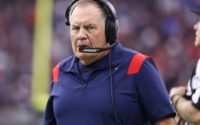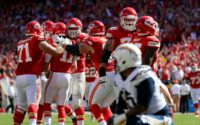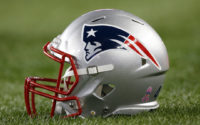Here’s How Cardboard Made Robert Kraft Rich Enough to Buy the New England Patriots
Cardboard gave Robert Kraft a good base to buy the New England Patriots and become the ultimate owner of the organization.
Kraft was born in 1941. His father was a dress manufacturer and he wanted Kraft to be a rabbi. However, Kraft had different plans. He went to Columbia University and finished his MBA at Harvard Business School. Kraft and Myra Hyatt met during his studies. Hyatt’s family was part of the paper business.
Jacob Hyatt ran the Rand-Whitney Group. Having Kraft on board seemed like a good deal back then. In 1968, Kraft had control of the company and he is still a chairman.
The next move surprised everyone. Kraft planned to found a separate company. That’s how the International Forest Products was born. The company was focused on trading paper commodities. Kraft integrated his company into Rand-Whitney and made a conglomerate of companies in the world of paper products. It was a good businessplan and Kraft became a billionaire.
Cardboard elevated Robert Kraft
Today, Kraft’s business is global. According to a 2012 press release from IFP, this company is the biggest supporter of New England.
Kraft is also involved in the world of smart investment. The Kraft group helped Jennifer Lopez and Alex Rodriguez set up a bid for the New York Mets. They also invested in the Overwatch esports league.
Kraft’s story with the Patriots started in the most interesting way ever. In 1994, Kraft realized that owner James Busch Orthwein plans to move the team to Jacksonville. In 1992, Kraft snapped up Foxboro Stadium for $22 million in bankruptcy proceedings. The organization couldn’t move without breaking the terms of the lease and this required a buyout.
Orthwein struggled with his unprofitable team and scrapped about $75 million offer on the lease. Kraft refused his offer. He wanted to own the team. He owned the land around the stadium and the stadium. Kraft set up a $!72 million offer on the organization, below a $200 million bid.
Every other buyer would have to handle Kraft’s land machinations, so Orthwein had to sell his possession. Kraft left his safe zone, but it was the best decision he has ever made.



